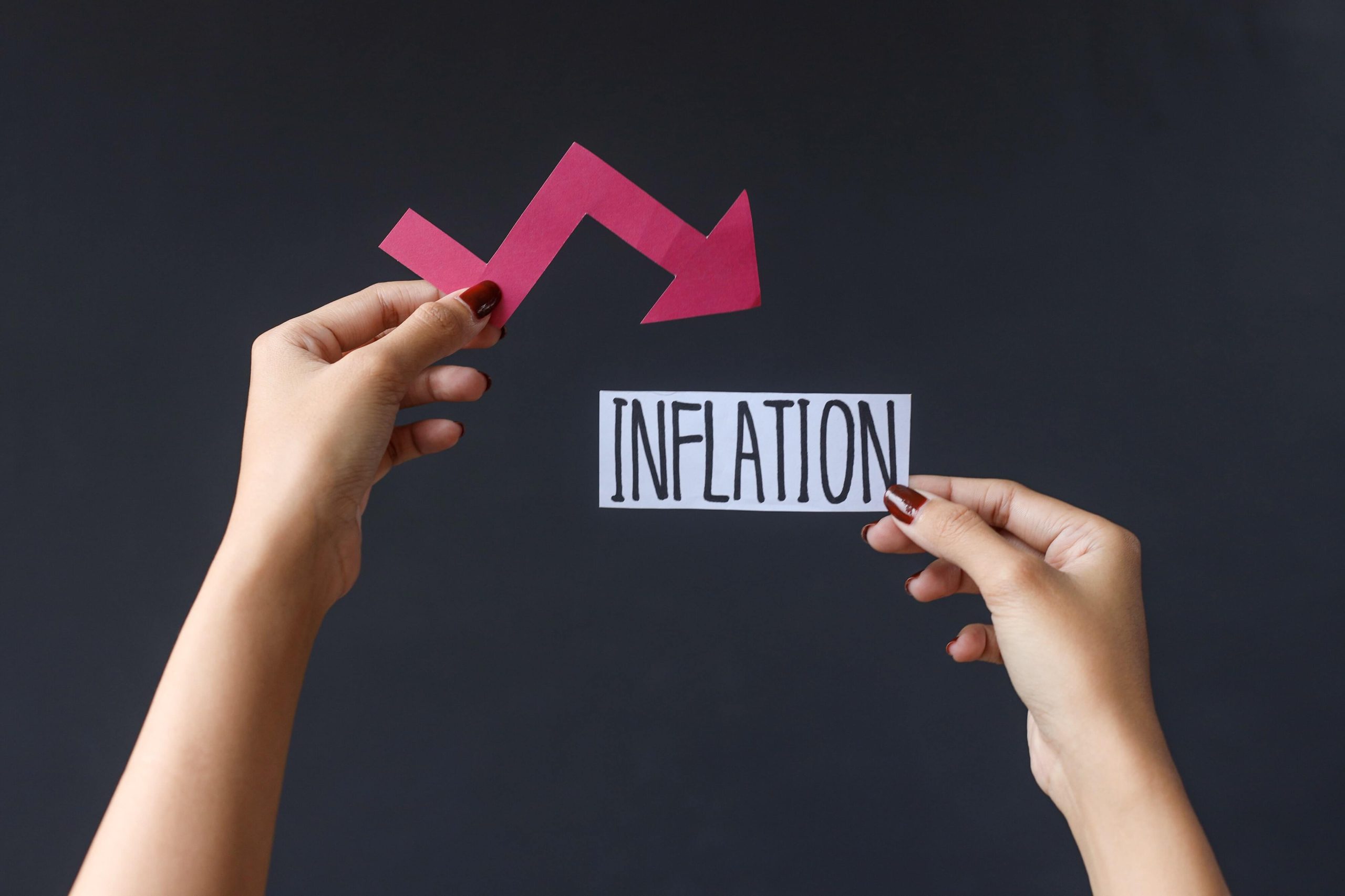Philippine inflation slowed to its weakest in nearly two years in December, but full-year readings remained outside the central bank’s target zone, reducing the chances of near-term rate cuts. The Bangko Sentral ng Pilipinas (BSP) remained stance on policy settings being “sufficiently tight” despite a slowdown in price gains. The consumer price index rose 3.9% from a year earlier in December, the slowest since February 2022 and the third straight month that inflation has eased. This brought the 2023 average inflation rate to 6.0%, still outside the central bank’s 2%-4% target. The BSP will continue to monitor inflation expectations and take appropriate action to bring inflation back to the target. A Reuters poll had forecast annual inflation of 4.0% in December, within the central bank’s projection for the month. Core inflation, which excludes volatile food and energy prices, was at 4.4% in December compared to 4.7% in the previous month.
The Philippine Inflation Dropped by 2.8% in the first month of 2024
Inflation in the Philippines dropped to 2.8% in January 2024, the slowest in over three years, according to the Philippine Statistics Authority. This is the lowest recorded since October 2020, and it was also slower than 3.9% in December 2023 and 8.7% in the same month last year. The National Economic and Development Authority (NEDA) assured the public that the government would continue monitoring food supply and prices in anticipation of the El Niño phenomenon spreading across more areas. The most significant contributor to the lower inflation rate was the easing of food inflation to 3.3% from 5.5% in December on decreased prices of corn, oils and fats, meat, and sugar. Rice inflation accelerated to 22.6% in January from 19.6% in the previous month.

NEDA Secretary Arsenio M. Balisacan said the Inter-Agency Committee on Inflation and Market Outlook (IAC-IMO) would continue to closely monitor the prices of rice and other goods to provide timely and appropriate policy recommendations and ensure stable and affordable prices of commodities. With the El Niño lingering until May, stop-gap measures may be introduced to ensure remunerative prices for local producers.
President Ferdinand Marcos Jr. issued Executive Order No. 50, extending reduced tariff rates of pork, corn, and rice until the end of 2024, and reactivated the Task Force El Niño through Executive Order No. 53. The Department of Agriculture will monitor on-the-ground situations and guide the government in addressing food production concerns.
Philippine Inflation Drops in January 2024: Implications for Real Estate Investments, with a Focus on Crown Asia
The economic landscape of the Philippines witnessed a notable shift at the onset of 2024 as the inflation rate experienced a significant drop. This development carries implications for various sectors, including real estate investments. In this article, we will delve into the factors contributing to the decline in the inflation rate, examine its potential impact on the real estate market, and shed light on how developers like Crown Asia can navigate this economic terrain.
Understanding the Inflation Rate Drop
In the first month of 2024, the Philippines experienced a noteworthy decrease in the inflation rate, a key indicator reflecting the average change in the prices of goods and services over time. This drop in the inflation rate, as measured by the Consumer Price Index (CPI), signifies a stabilization in the overall cost of living and reflects the dynamics between the supply and demand for goods and services in the market.
Factors Contributing to the Inflation Rate Decline

Several factors may have contributed to the decline in the inflation rate. These factors could include improved agricultural production, stable global oil prices, and prudent fiscal policies. As the cost of essential goods and services decreases, consumers benefit from increased purchasing power, influencing their spending behavior and, consequently, impacting various industries.
The Ripple Effect on Real Estate Investments
The drop in the inflation rate has the potential to significantly influence the real estate sector in the Philippines. One of the primary ways it can impact real estate investments is through an increase in the purchasing power of potential homebuyers. With the cost of living stabilizing, individuals may find themselves with more disposable income, making real estate investments a more attractive and feasible option.
Crown Asia’s Strategic Positioning
Amidst these economic shifts, developers like Crown Asia, a prominent player in the Philippine real estate market, can strategically position themselves to capitalize on the evolving landscape. By understanding the nuances of the changing economic conditions, Crown Asia can tailor its offerings to align with the shifting preferences and financial capacities of potential homebuyers.
Addressing Consumer Preferences
With increased purchasing power, consumers may seek more value-added features in their real estate investments. Crown Asia can adapt its offerings to include amenities, eco-friendly features, and smart home technologies, catering to the changing preferences of homebuyers in the wake of improved economic conditions.
Flexible Financing Options

As the inflation rate drops, interest rates may follow suit, presenting an opportune moment for developers like Crown Asia to offer attractive financing options. Lower interest rates can make real estate investments more accessible and affordable for a broader range of potential buyers, driving demand and stimulating growth in the real estate market.
Diversifying Portfolio Offerings
Crown Asia can explore diversifying its real estate portfolio to accommodate a wider range of consumer segments. Understanding that different market segments may respond differently to economic changes, offering a diverse range of properties, from mid-range to upscale developments, can position Crown Asia to capture a broader market share.
Incorporating Sustainable Practices
The decline in the inflation rate may prompt consumers to prioritize sustainability in their purchasing decisions. Crown Asia can align its developments with eco-friendly practices, promoting energy efficiency, and incorporating green spaces. This not only meets the growing demand for sustainable living but also positions the company as a socially responsible developer.
Fostering Innovation
Embracing innovation in real estate development can set Crown Asia apart in a competitive market. Utilizing technology to enhance customer experience, streamline processes, and offer unique features can be a strategic response to the changing economic landscape. This could include virtual property tours, online consultations, or the incorporation of smart home technologies.
Navigating Real Estate Investments in the Wake of Dropped Inflation: A Strategic Approach
The economic landscape is dynamic, and one of the key indicators reflecting its fluctuations is the inflation rate. The Philippines, in the first month of 2024, witnessed a notable drop in inflation. This shift has far-reaching implications for various sectors, including real estate investments. In this article, we explore how investors can strategically manage their real estate portfolios in response to the drop in inflation, focusing on the potential impact on consumer behavior and economic conditions. Additionally, we’ll examine the role of renowned real estate developer Crown Asia in this evolving scenario.
Understanding the Inflation Drop:
Inflation, a measure of the increase in the general price level of goods and services over time, plays a crucial role in shaping economic decisions. In the first month of 2024, the Philippines experienced a significant drop in inflation, as indicated by the consumer price index (CPI). This decline could result from various factors, such as reduced costs of production, improved supply chains, or changes in consumer spending patterns.
Consumer Behavior and Real Estate:

The drop in inflation is likely to influence consumer behavior, creating a ripple effect across various sectors, including real estate. As the cost of goods and services stabilizes or decreases, consumers may experience increased purchasing power. This shift can positively impact the real estate market, as potential homebuyers and investors may find themselves in a more favorable financial position.
Crown Asia’s Position in the Evolving Market:
Crown Asia, a distinguished real estate developer, is well-poised to navigate the changing economic landscape. As the inflation rate drops, Crown Asia can leverage its expertise to offer attractive real estate opportunities, aligning with the evolving financial capabilities and preferences of potential buyers. The company’s commitment to quality and innovation positions it as a key player in adapting to market dynamics.
Strategies for Managing Real Estate Investments:
- Evaluate Financing Options: With a drop in inflation, interest rates may also experience a decline. Investors should closely evaluate financing options, including mortgage rates, to capitalize on favorable terms. Lower interest rates can make real estate investments more appealing and affordable.
- Diversify Your Portfolio: In times of economic change, diversification is a prudent strategy. Consider diversifying your real estate portfolio to mitigate risks associated with market fluctuations. Explore opportunities in different segments, such as residential, commercial, or rental properties.
- Monitor Market Trends: Stay informed about the latest market trends. The drop in inflation may lead to increased consumer confidence and a higher demand for real estate. Being attuned to market dynamics allows investors to make informed decisions and seize potential opportunities.
- Explore Strategic Locations: The drop in inflation might influence the attractiveness of certain locations for real estate investments. Evaluate areas that are expected to experience growth and increased demand. Crown Asia, with its focus on strategic developments, can provide insight into promising locations.
- Negotiate Favorable Deals: In a market influenced by dropping inflation, investors may have an advantage in negotiating favorable deals. Sellers may be motivated to close transactions, providing an opportunity for investors to secure properties at more advantageous terms.
- Consider Long-Term Investments: A drop in inflation can create a stable economic environment conducive to long-term investments. Consider real estate projects with a long-term perspective, aligning with the potential for sustained economic stability and growth.
- Adapt Marketing Strategies: As consumer behavior shifts with changes in inflation, adapt marketing strategies to align with evolving preferences. Highlighting affordability, value for money, and unique features of properties can resonate well with potential buyers.
The drop in inflation in the Philippines marks a pivotal moment for real estate investors. Strategic management of real estate investments in response to this economic shift involves a nuanced approach, encompassing financing evaluations, portfolio diversification, market trend monitoring, location considerations, negotiation tactics, and adaptive marketing strategies. Crown Asia, with its commitment to excellence, is positioned to navigate and capitalize on these changes, offering innovative real estate solutions in the evolving economic landscape. By implementing these strategies, investors can not only weather economic fluctuations but also thrive in an environment marked by increased stability and potential growth.
What Are the Effects of Inflation Drop?

In the complex tapestry of economic indicators, inflation plays a pivotal role in shaping the financial landscape. The Philippines, like many other nations, recently experienced a notable drop in inflation. This economic shift carries multifaceted implications that ripple across various sectors, influencing consumer behavior, investment strategies, and overall economic stability. In this article, we unravel the effects of a drop in inflation, exploring how this phenomenon shapes the economic dynamics of a nation.
Increased Purchasing Power: One of the immediate effects of a drop in inflation is an increase in purchasing power for consumers. As the cost of goods and services stabilizes or decreases, individuals find themselves with more disposable income. This boost in purchasing power can stimulate consumer spending, driving economic growth.
Favorable Interest Rates: Inflation and interest rates are often intertwined. A drop in inflation typically leads to lower interest rates. This, in turn, encourages borrowing and investment activities. Businesses and individuals alike can benefit from more affordable financing options, promoting economic activities such as real estate investments and business expansions.
Stimulated Investment Climate: Reduced inflation rates contribute to a more stable investment climate. Investors may be more inclined to allocate funds to long-term projects and ventures, as the risks associated with unpredictable inflation diminish. This stability fosters confidence, attracting both domestic and foreign investments.
Boost in Real Returns on Investments: Investors often evaluate real returns on their investments by considering the impact of inflation. A drop in inflation enhances the real returns on investments, providing investors with a more accurate representation of their profits after accounting for changes in the general price level.
Positive Impact on Fixed-Income Individuals: Individuals on fixed incomes, such as retirees and pensioners, benefit from a drop in inflation. With a more stable cost of living, fixed-income individuals experience increased purchasing power, allowing for a more comfortable lifestyle without the constant threat of eroding savings due to rising prices.

Consumer Confidence and Spending: Lower inflation contributes to enhanced consumer confidence. When individuals are confident in the stability of prices, they are more likely to spend rather than save. Increased consumer spending, in turn, stimulates economic activities, supporting businesses and contributing to overall economic growth.
Stable Cost of Living: For the general population, a drop in inflation translates to a stable cost of living. Essential goods and services become more affordable, and households can allocate their resources more efficiently. This stability alleviates financial stress and contributes to an improved quality of life for many.
Impact on Debt Repayment: Individuals and businesses with outstanding loans may benefit from a drop in inflation. As interest rates decrease, the cost of debt repayment becomes more manageable. This can relieve financial burdens and potentially stimulate additional borrowing for investment purposes.
Potential Impact on Currency Exchange Rates: In the global economic context, a drop in inflation can influence currency exchange rates. If a country experiences lower inflation than its trading partners, its currency may strengthen. This has implications for international trade, affecting export and import dynamics.
Challenges for Savers: While a drop in inflation benefits borrowers and investors, it may pose challenges for savers. Traditional savings accounts with fixed interest rates may offer lower returns in an environment of reduced inflation. Savers may need to explore alternative investment options to preserve and grow their wealth effectively.


